Small Business Administration (SBA): Structure, Programs & Resources
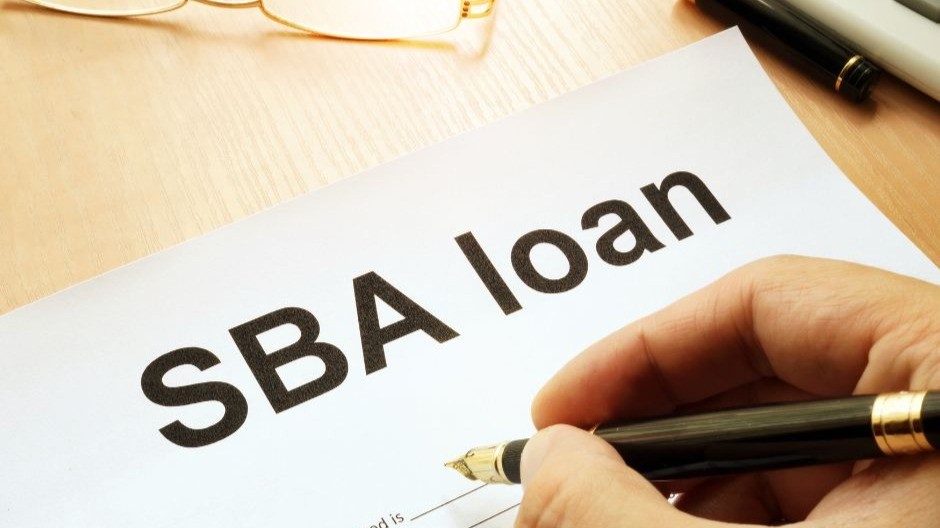
Introduction to Small Business Administration
The Small Business Administration (SBA) leadership team oversees small business loan programs and SBA business programs to support entrepreneurs. Through small business initiatives, the SBA provides financial assistance, funding opportunities, and mentorship to help businesses grow. Learn about funding, contracting, and support services available for small businesses.
Established in 1953, the SBA plays a crucial role in supporting small businesses in the United States. It offers essential resources such as government contracting assistance, disaster relief programs, and various small business loan programs to ensure entrepreneurs have access to the capital and guidance needed for success.

Understanding the SBA structure is essential for business owners looking to access loans, grants, or certification programs. From loan programs like the 7(a) and 504 loans to resource networks such as Small Business Development Centers (SBDCs) and SCORE mentors, the SBA offers a wide range of tools to drive business success.
In this guide, we’ll break down the SBA’s structure, core programs, and resources to help small business owners navigate available opportunities effectively.
Small Business Administration Leadership & Governance: Driving Small Business Initiatives
The Small Business Administration (SBA) plays a vital role in launching and managing SBA business programs. Through strategic small business initiatives, the SBA provides funding, mentorship, and government contracting opportunities. Its leadership team oversees critical small business loan programs to empower entrepreneurs nationwide.
Administrator: Overseeing SBA Business Programs & Small Business Initiatives
The SBA Administrator leads the agency’s efforts in expanding SBA business programs and implementing effective small business initiatives. This role ensures that entrepreneurs receive the support they need through small business loan programs and grant opportunities.
Deputy Administrator: Strengthening Small Business Initiatives
The Deputy Administrator supports the Small Business Administration by executing small business initiatives and overseeing SBA business programs such as small business loan programs. This position ensures small businesses get access to financial aid and resources.
Chief of Staff: Managing Small Business Administration Leadership & Small Business Initiatives
The Chief of Staff works closely with SBA leadership to develop and implement small business initiatives. By overseeing internal operations, this role ensures that entrepreneurs benefit from SBA programs, including mentorship and federal funding.
Chief Operating Officer (COO): Enhancing SBA Business Programs
The COO plays a key role in managing SBA business programs and ensuring smooth execution of small business initiatives. This position oversees government-backed funding, disaster relief programs, and federal contracting opportunities.
Chief Financial Officer (CFO): Overseeing Small Business Administration Loan Programs
The CFO manages the financial aspects of the Small Business Administration, ensuring funds for small business initiatives are distributed effectively. This includes overseeing small business loan programs and ensuring compliance with federal guidelines.
General Counsel: Legal Compliance for Small Business Administration Business Programs
The General Counsel provides legal oversight for SBA business programs, ensuring that small business initiatives align with federal regulations. This role protects businesses engaged in small business loan programs and other funding opportunities.
The SBA leadership is dedicated to promoting SBA business programs and small business initiatives. By managing key small business loan programs, the Small Business Administration continues to support entrepreneurs with funding, mentorship, and government contracts.
Core Offices: Driving Small Business Administration Programs Leadership & Small Business Initiatives
The Small Business Administration (SBA) operates key offices to manage SBA business programs, small business loan programs, and Small Business Initiatives. These offices ensure entrepreneurs receive financial assistance, training, and federal contracting support.
Office of Capital Access: Managing Small Business Loan Programs
This office oversees small business loan programs, ensuring businesses can access government-backed funding. It plays a key role in SBA business programs by helping entrepreneurs secure financing for growth and expansion.
Office of Entrepreneurial Development: Strengthening Small Business Initiatives
Focused on training and mentorship, this office supports Small Business Initiatives by providing education, business development, and advisory services. It plays a vital role in SBA leadership efforts to equip entrepreneurs with essential skills.
Office of Government Contracting & Business Development
Supporting SBA business programs, this office ensures small businesses gain fair access to federal contracts. It strengthens Small Business Administration policies to help businesses secure government projects.
Office of Disaster Assistance: Emergency Loans & Business Recovery
This office provides financial aid through small business loan programs, helping businesses recover from disasters. As part of SBA leadership, it ensures swift emergency relief and funding support.
Office of Advocacy: Policy & Research for Small Business Growth
The Office of Advocacy represents small businesses in policy discussions, conducting research to enhance SBA business programs. It supports Small Business Initiatives by improving regulatory conditions and business opportunities.
Through these core offices, the Small Business Administration strengthens SBA business programs, expands small business loan programs, and advances Small Business Initiatives, ensuring entrepreneurs receive the resources needed for success.
Regional & District Offices: Expanding Small Business Administration Programs Business Programs Nationwide
The Small Business Administration (SBA) operates regional and district offices to oversee SBA business programs and small business loan programs. These offices provide direct support to entrepreneurs, ensuring Small Business Initiatives reach businesses nationwide.
10 Regional Offices: Overseeing Small Business Administration Leadership Across the U.S.
The SBA has 10 regional offices that manage SBA leadership efforts across multiple states. These offices coordinate small business loan programs, funding distribution, and Small Business Initiatives, ensuring entrepreneurs receive proper assistance.
68 District Offices: Direct Support for Small Businesses
With 68 district offices nationwide, the Small Business Administration provides hands-on support to small businesses. These offices implement SBA business programs at the local level, offering guidance on funding, mentorship, and government contracting.
Through its regional and district offices, the SBA strengthens small business loan programs, expands Small Business Initiatives, and enhances SBA business programs to support entrepreneurs in every state.
Resource Partner Networks: Strengthening Small Business Initiatives
The Small Business Administration (SBA) collaborates with resource partner networks to support entrepreneurs. These programs enhance Small Business Initiatives by providing mentorship, training, and funding guidance. Through small business loan programs and expert advisors, businesses gain essential resources for success.
Small Business Development Centers (SBDCs)
SBDCs offer expert consulting, financial planning, and business training. As part of Small Business Initiatives, these centers help entrepreneurs navigate small business loan programs and develop growth strategies.
Women’s Business Centers (WBCs)
Designed to support women entrepreneurs, WBCs provide mentorship, business education, and access to funding. These centers align with the Small Business Administration’s mission to promote equal opportunities in entrepreneurship.
SCORE Mentors: Expert Guidance for Entrepreneurs
SCORE connects small business owners with experienced mentors who provide strategic advice. This initiative strengthens Small Business Initiatives by guiding startups and existing businesses through challenges.
Veterans Business Outreach Centers (VBOCs)
VBOCs assist veteran entrepreneurs by offering training, funding support, and mentorship. These centers align with SBA leadership efforts to ensure veterans succeed in business.
Through these resource partner networks, the Small Business Administration enhances Small Business Initiatives, provides access to small business loan programs, and ensures entrepreneurs receive expert support.
Small Business Administration Programs Loan & Funding Programs
The SBA offers various loan and funding programs designed to meet the financial needs of businesses. These programs provide essential capital for startups, expansions, and recovery efforts.
7(a) Loan Program: General Business Loans
The 7(a) Loan Program is the most common financing option, helping businesses cover operational expenses, purchase inventory, and expand their operations.
504 Loan Program: Real Estate & Equipment Financing
This program provides long-term, fixed-rate financing for purchasing commercial real estate, machinery, and equipment, supporting business growth and stability.
Microloan Program: Small-Scale Funding
Microloans offer smaller loan amounts to startups and small businesses that need working capital, inventory, or supplies to establish and grow their operations.
Disaster Loan Program: Recovery Assistance
Businesses affected by natural disasters can access low-interest loans to repair or replace damaged property, inventory, and equipment, ensuring continuity and recovery.
These loan and funding programs provide businesses with flexible financial solutions, ensuring access to capital for various needs.
Certification & Contracting Programs: Expanding Small Business Administration Business Programs
The Small Business Administration (SBA) provides certification and contracting programs to help businesses secure federal contracts. These programs support Small Business Initiatives, ensuring diverse entrepreneurs gain access to government opportunities. Through SBA leadership, these initiatives complement small business loan programs by offering additional growth opportunities.
8(a) Business Development Program: Supporting Minority-Owned Businesses
The 8(a) Business Development Program is a key part of SBA business programs, helping socially and economically disadvantaged businesses compete for federal contracts. This initiative aligns with Small Business Administration efforts to promote inclusivity.
HUBZone Program: Strengthening Underserved Business Areas
The HUBZone Program fosters economic growth in historically underutilized areas. As part of Small Business Initiatives, it helps businesses in these zones gain preferential access to federal contracting opportunities.
Women-Owned Small Business (WOSB) Federal Contracting
The WOSB program ensures women entrepreneurs receive federal contract opportunities. Under SBA leadership, this program expands small business loan programs and certification benefits for women-owned businesses.
Service-Disabled Veteran-Owned Small Business (SDVOSB) Program
Designed for veteran entrepreneurs, the SDVOSB program provides exclusive access to government contracts. The Small Business Administration supports these businesses through dedicated Small Business Initiatives and funding assistance.
These certification and contracting programs play a vital role in SBA business programs, strengthening Small Business Initiatives, expanding small business loan programs, and reinforcing SBA leadership efforts to support entrepreneurs nationwide.
Advocacy, Research & Policy: Strengthening Small Business Initiatives
The Small Business Administration (SBA) plays a vital role in shaping policies that support entrepreneurs. Through research, regulatory assistance, and accountability measures, SBA leadership ensures small businesses thrive. These efforts complement Small Business Initiatives and small business loan programs by fostering a fair and transparent business environment.
Small Business Economic Research
The SBA conducts research to analyze trends, economic challenges, and opportunities for entrepreneurs. This research supports Small Business Initiatives by providing data-driven insights that guide policy development.
Office of National Ombudsman: Regulatory Compliance Assistance
This office helps small businesses navigate federal regulations and address compliance challenges. By working with SBA leadership, it ensures fair treatment and reduces unnecessary regulatory burdens on small businesses.
SBA’s Office of Inspector General (OIG): Ensuring Fraud Prevention & Accountability
The OIG safeguards Small Business Administration programs by detecting fraud and promoting transparency. These efforts enhance the integrity of small business loan programs, ensuring resources reach legitimate businesses.
Through advocacy, research, and oversight, the Small Business Administration strengthens Small Business Initiatives, enforces accountability, and supports small businesses nationwide.
Frequently Asked Questions (FAQs)
What is the role of the Small Business Administration (SBA)?
The Small Business Administration supports entrepreneurs by providing funding, mentorship, small business loan programs, and government contracting opportunities.
How do SBA leadership initiatives benefit small businesses?
SBA leadership ensures businesses receive financial assistance, policy support, and regulatory guidance to help them grow and compete effectively.
What are Small Business Initiatives?
Small Business Initiatives include funding programs, advocacy, and mentorship opportunities designed to empower entrepreneurs and drive business success.
How can I apply for small business loan programs?
You can apply for SBA loan programs through approved lenders. The SBA offers various options, including 7(a) loans, 504 loans, and microloans.
What types of SBA business programs are available?
The SBA offers certification, contracting, funding, and training programs to help businesses secure resources and grow in competitive markets.
How does the SBA support minority and women-owned businesses?
Programs like the 8(a) Business Development Program and the Women-Owned Small Business (WOSB) program provide mentorship and government contracting opportunities.
What is the purpose of the SBA Office of Advocacy?
This office conducts economic research and represents small businesses in policymaking, ensuring fair regulations and support for entrepreneurs.
These FAQs provide insights into Small Business Administration programs, SBA leadership, Small Business Initiatives, and small business loan programs to help entrepreneurs succeed.
Conclusion
Understanding the structure and programs available can help businesses navigate opportunities more effectively. From funding to advocacy, each component plays a crucial role in supporting entrepreneurs. Access to financial resources, training, and policy support ensures businesses can grow and adapt to changing economic conditions.
Whether seeking funding, mentorship, or regulatory assistance, knowing the available resources is essential. With a strong support system in place, businesses can build resilience and achieve long-term success.





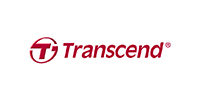

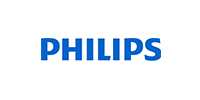

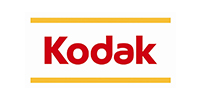

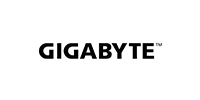
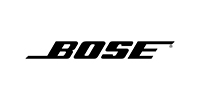
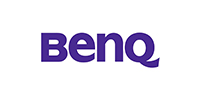

1 thoughts on “Small Business Administration (SBA): Structure, Programs & Resources”